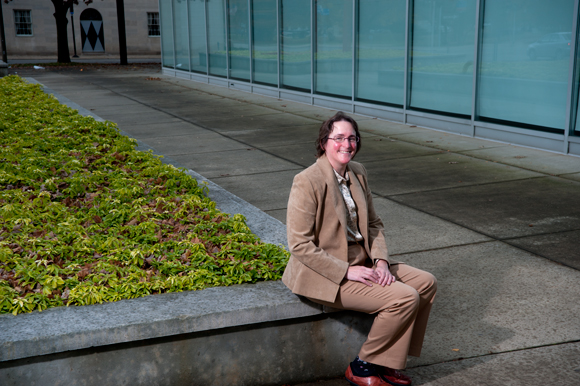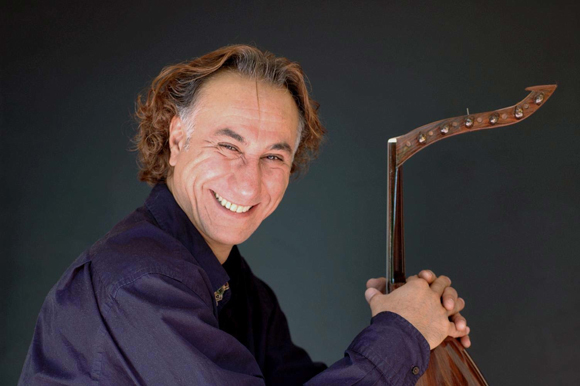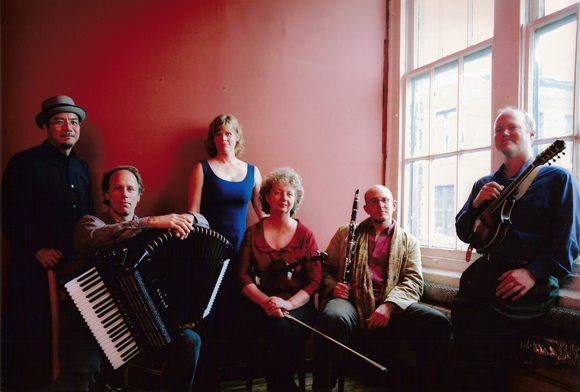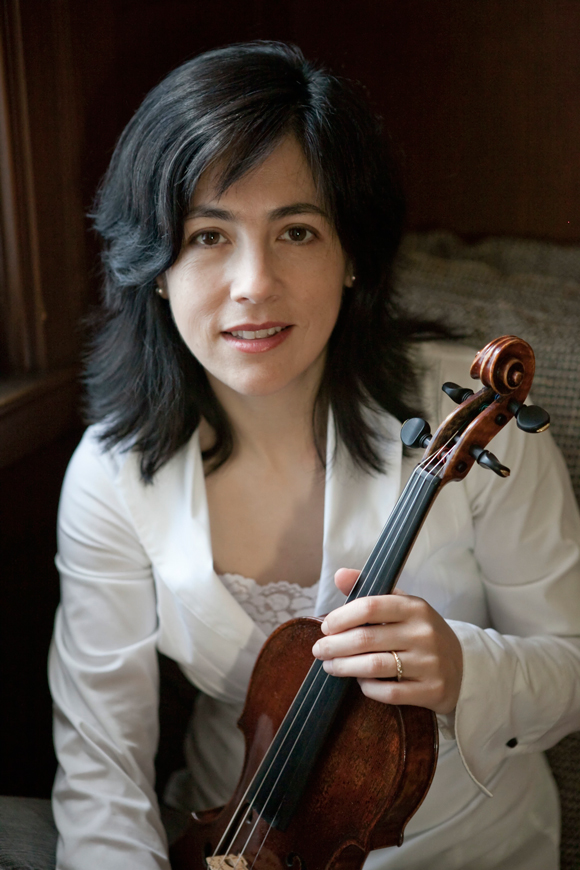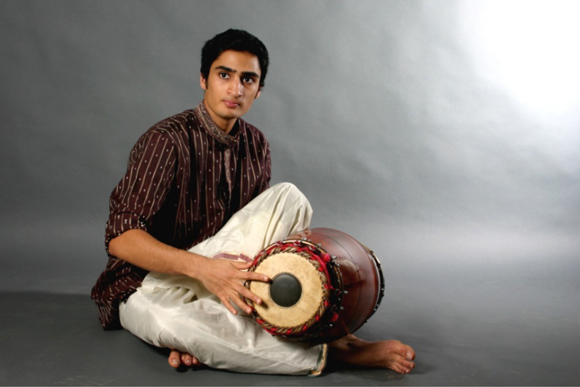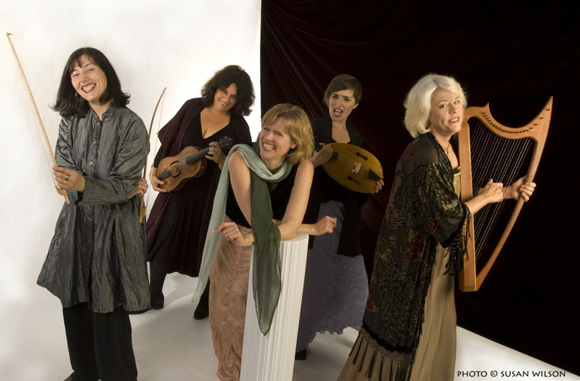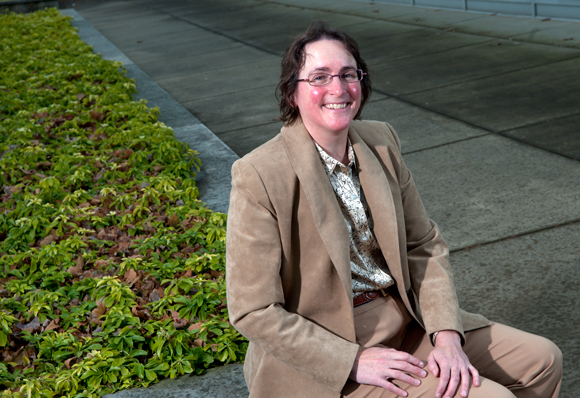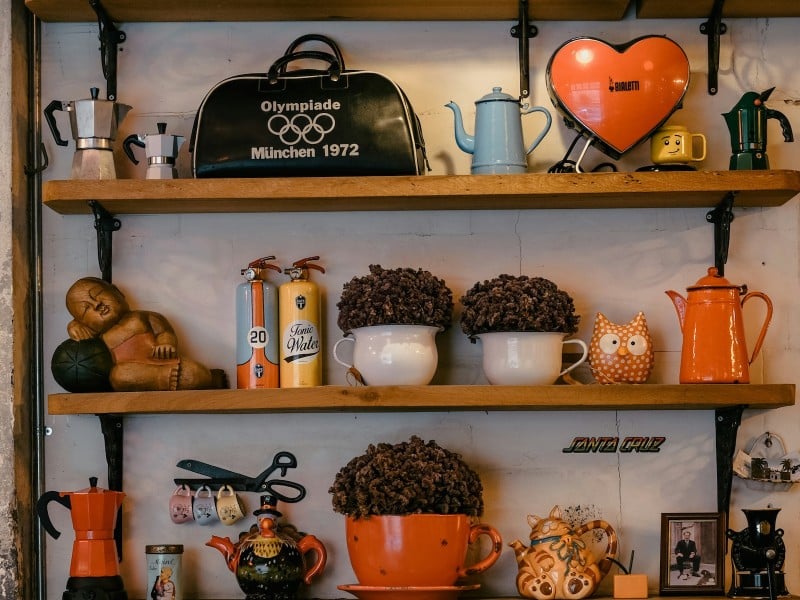A festival for music and finding common cultural ground
Enjoying and learning from our own and other cultures through music is what the Michigan Festival of Sacred Music is all about. Jane Parikh talks to Executive Director Elizabeth Start about the way the festival brings the world to Kalamazoo.
A different type of religious experience is in store for individuals who attend the biennial Michigan Festival of Sacred Music beginning today in Kalamazoo. This one is musical.
Those expecting to hear the haunting sounds of Gregorian chants sung by monks won’t find that, but they will hear offerings of cultural diversity they may not previously have experienced.
Some examples: The sacred music in this year’s festival features the sounds of MusicAEterna, a trio, that merges spiritual traditions and world philosophies with projections of Japanese calligraphy reinforcing themes of compassion and understanding. And Le Bon Vent, a group of six musicians who explore Arabic influences in French music dating back to the Arabic occupation of the Iberian peninsula in the Middle Ages.
“I think the biggest misconception is that people think it’s a worship service,” says Elizabeth (Betsy) Start, executive director of the Sacred Music Festival. “When you see the words ‘sacred music’ it tends to evoke church.”
Churches, synagogues and mosques often are the roots of the pieces being performed and the cultural influences this type of music has is one of the aspects being explored through the festival. Start and other leaders of the festival make it very clear, however, that performers cannot use their appearances as platforms to preach.
Festival founders had specific goals in mind when they began laying the groundwork for the event in 1999. The first festival took place in 2001 when it began what is now a tradition of offering both ticketed and free events.
Through the sharing of music of different cultures and traditions, Start says, festival organizers believe an understanding of different faith groups is created.
“The festival is a highly artistic setting where people are able to see the music of different traditions,” Start says. “This is making people aware of how small the world is becoming.”
That shrinking world is seen in another way. Start receives inquiries throughout the year about the festival from performers in countries such as Italy, Lebanon and Turkey. Many of the inquiries come from Asia, Europe and South America.
The festival — believed to be the only one of its kind in the United States — is becoming a highly sought after venue for musicians.
“Some of the (performers) are people I’ve heard about because I happened to have seen an article somewhere about them,” such as a choir performing Tanzanian music that may come to Kalamazoo in the future, Start says. “A lot of it is keeping our ears open.”
A few of the artists are acquaintances of Start, who is a professional cellist with the Kalamazoo Symphony Orchestra and an orchestra in Illinois and a composer.
“We try to bring in some artists and music that are new to us and new to the community,” Start says. “We also try to strike a balance in the different faith traditions the festival presents.”
This year, the festival offers an opportunity for concert-goers to learn more about the cultures of France, Iraq, Romania, Austria, Tibet and India through music and instruments such as Native American and Japanese flutes and stringed instruments from around the world like the tanbur, a two-stringed instrument from the people of Kurdish Yarsan, a chitravina, the 21-stringed, fretless lute of South India, and the oud, a pear shaped, 13-stringed instrument of the Middle East.
The oud, considered the grandfather of all stringed instruments, will be featured in performances by Rahim AlHaj, a master of the instrument and a Grammy nominated musician. He is one of a number of performers featured in the festival who showed amazing aptitude for his instrument at a young age and he went on to learn from the top teachers.
He was forced to leave his homeland of Iraq in 1991 due to his activism against Saddam Hussein’s regime, relocated to Jordan and Syria, then came to the United States as a political refugee in 2000. He now lives in Albuquerque, N.M., and has been a United States citizen since 2008.
His work brings together music of the Iraqi Sufi tradition and his original compositions to explore the experience of the exile. The spirituality of place, loss, hope and redemption are all musical themes that AlHaj incorporates in his work.
From a tradition that might be more familiar to festival patrons a hymn fest led by church musician Richard Webster comes the final afternoon of the festival.
Start says she tries to make each festival different and returning performers participating in the tenth anniversary of the event won’t be doing the same things that were a part of the festival two years ago.
Performances take place evenings and on the two weekends which bookend the festival at venues in and around Kalamazoo. There also are “fringe” events that include educational and special fundraising opportunities.
The festival’s two-week run wraps up Nov. 20 with an evening of jazz at the Union Cabaret & Grille with Deanna Witkowski.
Start says she expects between 3,000 and 7,000 people to attend the festival.
Organizers of the event celebrated every two years say the first festival 10 years ago was an “overwhelming success,” which they continue to build upon. In 2004, the Michigan Festival of Sacred Music presented its first off-season event, which proved to be popular. The festival plans to continue the presentation of single off-season events.
“When we first started it was only one weekend,” Start says. “Now we have two weekends with performances in between.”
Since the early years, there’s been a steady climb in visibility for the Michigan Festival of Sacred Music.
And planning is already under way for the next festival which will build upon the growing success of the event.
“We start a couple of years out and once this is over we’ll be looking,” Start says. “There is such a wealth of artists and styles of music available that it is always exciting to start planning the next festival.”
Jane C. Parikh is a freelance reporter and writer with more than 20 years of experience. She is the owner of In So Many Words, based in Battle Creek.
Photos by Erik Holladay or are provided by the artists.
Elizabeth Start is the executive Director for the Michigan Festival of Sacred Music. The festival offers a unique blend of musical diversity from many different cultures. (By Erik Holladay)
Rahim AlHaj will be in concert Tuesday, Nov. 15.
Le Bon Vent will appear on the festival’s opening weekend, Friday, Nov.11.
MusicAEterna, with Aenea M. Keyes on violin, opens the 10th anniversary festival, Thursday, Nov. 10.
Rohan Krishnamurthy performs with Chitravina N. Ravikiran Friday, Nov. 18.
Tapestry has become a favorite of local festival-goers. They perform new music from an ancient tradition in Tibet Sunday, Nov. 13.
Elizabeth Start, cellist, composer and executive Director for the Michigan Festival of Sacred Music. (By Erik Holladay)

